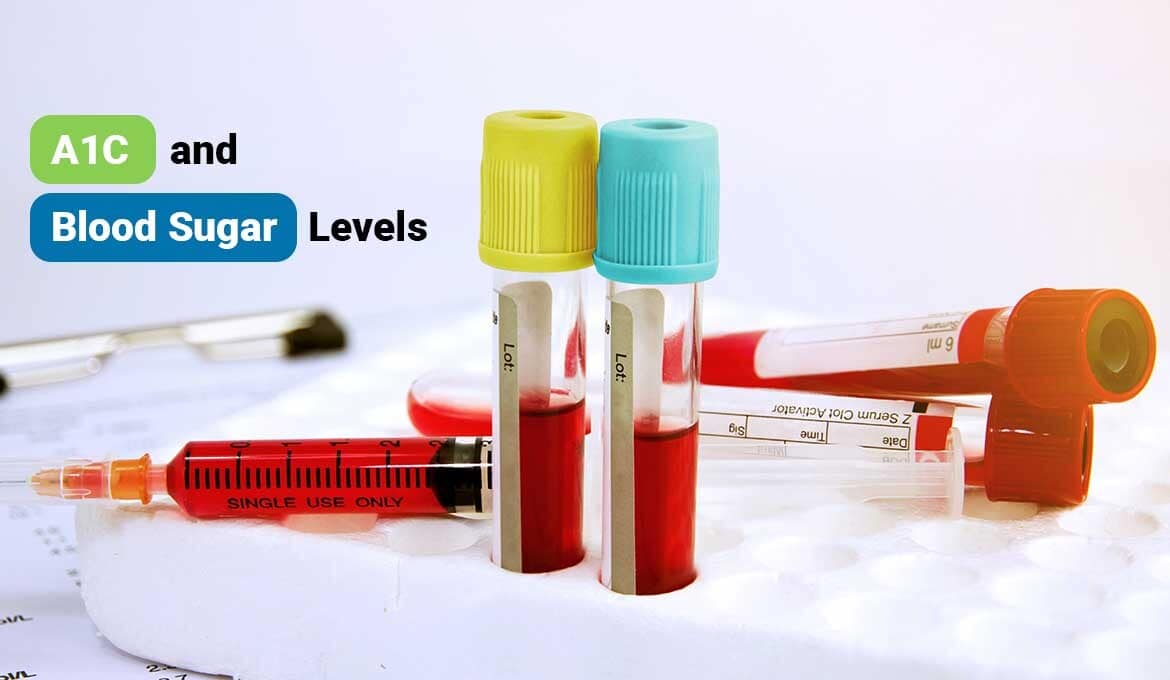
Fighting an illness can be an arduous challenge. People suffering from diseases face massive upheaval in their lives to accommodate lifestyle changes and medication required to combat them. It can be tough to deal with deteriorating health amidst this.
Most symptoms arising from a particular disease can be managed, if not reversed. Following your doctor’s advice and enlisting your family’s support can go a long way in helping you manage or reverse symptoms.
Diabetes is one disease whose prevalence has been steadily increasing over the years, and it is now considered a major global health concern. Over 420 million people worldwide are afflicted with diabetes.
It is a disease that demands lifestyle changes to manage symptoms and can be grueling to deal with.
However, like most diseases, the symptoms of diabetes can be dealt with by following the advice provided by your healthcare provider, making appropriate changes in your medication and lifestyle, and relying on the support of your loved ones.
In this article, we look at how you can potentially manage or reverse kidney damage caused by diabetes in a substantial way.
What is diabetes?
Diabetes is a chronic medical condition that affects the body's ability to produce or use insulin, a hormone that regulates blood sugar levels.
When insulin is not produced or used properly, glucose, or sugar, builds up in the bloodstream instead of being transported into the body's cells to be used for energy. This leads to high blood sugar levels, which can cause a range of health problems.
There are two main types of diabetes: type 1 and type 2. Type 1 diabetes, also known as insulin-dependent diabetes, is an autoimmune disease wherein the body's immune system attacks and destroys the insulin-producing cells in the pancreas.
This type of diabetes is typically diagnosed between your childhood to adolescent years and requires daily insulin injections or the use of an insulin pump to manage blood sugar levels.
Type 2 diabetes, on the other hand, is a metabolic disorder where the body becomes resistant to insulin, or doesn't produce enough insulin to meet the body's needs. This type of diabetes is often associated with lifestyle factors such as obesity, physical inactivity, and poor diet, and is typically diagnosed in adulthood.
Treatment for type 2 diabetes may involve lifestyle changes such as weight loss and exercise, as well as taking medication to help the body use insulin more effectively.
Both types of diabetes can lead to a range of complications if left untreated or poorly managed, including nerve damage, kidney damage, blindness, and cardiovascular disease.
Therefore, it is important for those diagnosed with diabetes to monitor their blood sugar levels regularly, follow a healthy diet and exercise plan, and work closely with their healthcare provider to manage their condition.
Kidney damage due to diabetes
The kidneys play a crucial role in regulating blood sugar levels by filtering waste products and excess fluids from the bloodstream. They do this by reabsorbing essential nutrients and returning them to the bloodstream while excreting waste products and excess fluids in the form of urine.
Patients diagnosed with diabetes have high blood sugar levels that can cause damage to the small blood vessels and filtering units in the kidneys over time, leading to a condition called diabetic nephropathy.
When the kidneys become damaged, they may no longer be able to effectively filter waste products and excess fluids from the blood, leading to a build-up of these substances in the body.
The singular mechanism behind kidney damage caused by high blood sugar levels is yet to be established. It is believed to be due to a combination of factors.
For example, high levels of glucose in the blood can lead to the formation of harmful substances called Advanced Glycation End-products (AGEs), which can damage blood vessels and other tissues in the body.
AGEs can also cause inflammation and oxidative stress, which further contribute to kidney damage.
In addition to causing direct damage to the kidneys, high blood sugar levels can also lead to other complications that can increase the risk of kidney damage.
For example, people with diabetes are at increased risk of developing high blood pressure, which can further damage the blood vessels in the kidneys and impair their ability to filter waste products.
In summary, the kidneys play a critical role in regulating blood sugar levels by filtering waste products and excess fluids from the bloodstream.
However, high blood sugar levels can cause damage to the kidneys of a diabetic over time, leading to a condition called diabetic nephropathy. This can ultimately lead to kidney failure if left untreated.
Reversing kidney damage caused by diabetes
Kidney damage caused by diabetes is a difficult symptom to reverse, but there are steps that people with diabetic nephropathy can take to slow, or halt, the progression of the condition and improve kidney function overall.
The goal of treatment, aside from addressing the underlying causes of kidney damage, is to manage blood sugar and blood pressure levels, as well as address any underlying causes of kidney damage.
Here are some steps that can help reverse kidney damage caused by diabetes:
Controlling blood sugar levels:
A high blood sugar level is the main symptom of diabetes and the root cause of kidney damage. The first step in managing diabetic nephropathy is to maintain blood sugar levels within a healthy range.
This involves changes to your diet, workout regime, and medication, coupled with regularly monitoring your blood sugar levels.
Managing blood pressure:
High blood pressure can worsen kidney damage and lead to further complications. Medications such as ACE (Angiotensin-Converting Enzyme) inhibitors and ARBs (Angiotensin II Receptor Blockers) may be prescribed to keep blood pressure low to protect the kidneys.
Following a kidney-friendly diet:
Apart from regulating blood glucose levels, the kidneys play a crucial role in the absorption of various nutrients, like protein. Certain food items, like diuretics or sodium, can affect the water retention level of the body.
A diet that is low in sodium, phosphorus, and protein can help reduce the workload on the kidneys and slow down the progression of kidney damage.
A qualified dietician will be able to provide you with guidance on what the right and, more importantly, wrong food would be for you to consume.
Quitting smoking:
Smoking is a harmful habit that can affect every organ in the body. This habit can worsen kidney damage and increase the risk of kidney failure. Quitting smoking can help improve kidney function and reduce the risk of further complications.
Exercising regularly:
Regular physical activity has health benefits for the entire body. Incorporating a good fitness regime into your life can reduce the risk of complications associated with diabetic nephropathy.
However, it is important to talk to a healthcare provider before starting a new exercise routine.
Taking medications:
Certain medications can help halt kidney damage by working on overall kidney health. These medications can help improve kidney function, reduce inflammation, and lower blood pressure.
Medications include Angiotensin Receptor Blockers (ARBs), Angiotensin-Converting Enzyme (ACE) inhibitors, and diuretics.
It is important to note that reversing kidney damage caused by diabetes can take time and, in some cases, may not be possible.
It is vital that you work closely with your healthcare provider to monitor kidney function and optimize treatment as per your body’s requirements. In severe cases, a kidney transplant or dialysis may be necessary to replace the function of the damaged kidneys.
Conclusion
Diabetes is a disease of global concern, affecting millions of people. The symptoms of diabetes, like frequent urination and subsequent kidney damage, can be difficult to tackle.
However, they can be managed easily by making the right changes to your lifestyle, seeking advice from your healthcare provider, and relying on your loved ones for support.
The primary factor to keep in check is your blood sugar level. It is the main symptom of diabetes and the underlying cause of other symptoms like kidney damage. By managing your blood sugar level within a healthy range, you can easily keep an eye on the symptoms of diabetes.
FAQs
Q: Can kidney damage caused by diabetes be reversed?
A: While it may not always be possible to completely reverse kidney damage caused by diabetes, there are simple steps that you can take to slow down or halt the progression of the condition and improve kidney function.
Q: What steps can I take to improve kidney function?
A: Some steps that may help improve kidney function include controlling blood sugar levels, managing blood pressure, following a kidney-friendly diet, quitting smoking, exercising regularly, and taking medications as prescribed.
Q: Can changing my diet help reverse kidney damage caused by diabetes?
A: Following a kidney-friendly diet that is low in sodium, phosphorus, and protein may help reduce the workload on the kidneys and slow the progression of kidney damage. A qualified dietician can provide guidance on the best foods to eat and avoid.
Q: Can exercise help reverse kidney damage caused by diabetes?
A: Regular physical activity can help improve overall health and may also help reduce the risk of complications associated with diabetic nephropathy. However, it is important to talk to a healthcare provider before starting a new exercise routine.
Q: Can medications help reverse kidney damage from diabetes?
A: Certain medications, such as Angiotensin Receptor Blockers (ARBs), Angiotensin-Converting Enzyme (ACE) inhibitors, and diuretics, can help improve kidney function, reduce inflammation, and lower blood pressure.
Q: How long does it take to see improvements in kidney function?
A: Reversing kidney damage caused by diabetes can take time and varies depending on the individual.
Read Also:






